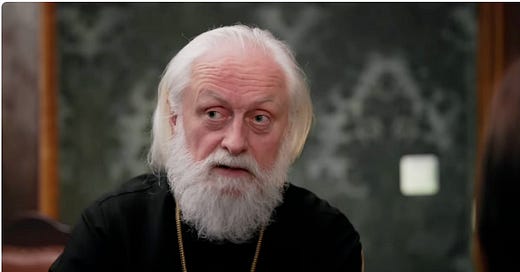Estonia’s Orthodox Church complains of state interference
Government should not interfere in church canons, says Estonian Bishop
Despite recently amending its statute and documents, the Estonian authorities still consider the Estonian Orthodox Church (EOC-MP) not entirely independent from Russia’s Patriarch Kirill. This has prompted a reaction from the church, which claims state interference in “canonical matters.”
Estonia’s Ministry of Interior has received pushback from the Estonian Orthodox Church (EOC-MP) after it was criticised for the church's unsatisfactory progress in cutting relations with Moscow.
The church and the state have been in a “tug of war” over the canonical subordination of the Estonian Orthodox Church to the Moscow Patriarchate since the beginning of the year when Tallinn expelled the church's leader to Moscow on national security grounds.
In the most recent exchange, the Estonian Bishop Daniel of Tartu complained about state interference in canonical matters.
“Speaking of church canons, there is also a different interpretation between churches. There should be no state interference regarding what is canonically correct. State authorities do not have such authority,” EOC-MP’s de facto leader stated.
Over the summer, the EOC-MP adopted several changes to its statute, including a name change, to reflect the church’s independence.
However, the state deemed this insufficient. At the beginning of October, the Ministry of Interior said that the changes the church has made to show independence from the Russian church have been “merely cosmetic.”
In a letter sent by the Secretary General of the Ministry of the Interior, Tarmo Miilits, to Bishop Daniel, the authorities state that the church is neither “independent” nor “autonomous” but one with limited independence or a “self-governing” status.
"The Moscow Patriarchate's influence over the Estonian Orthodox Church of the Moscow Patriarchate (MPEÕK) will not diminish, despite changing the church's name or removing references to the Moscow Patriarchate, the Russian Orthodox Church, and the Patriarch from its statutes. As seen from both the statutes and the accompanying letter, these changes are merely cosmetic,” is stated in the letter.
“Such a rewording of the statutes may only give the appearance of reduced influence, but in reality, the Moscow Patriarchate's control remains unchanged, both administratively and canonically.”
The Ministry also rejected the revised name the church adopted (Estonian Orthodox Church) because it contradicted Estonia’s legislation. The new name (without the Moscow Patriarchate add-on) is said to be very similar to the other Orthodox church in Estonia - the Estonian Apostolic Orthodox Church, which is under the Ecumenical Patriarchate.
According to the state, the point of contestation is the reference to the 1993 tomos that the MPEOK received from the Russian Orthodox Church together with the Latvian and Moldova’s Orthodox churches. The Ministry of Interior official stated that it is wrong to claim that Patriarch Kirill “cannot issue any binding directives to the church on administrative matters.”





